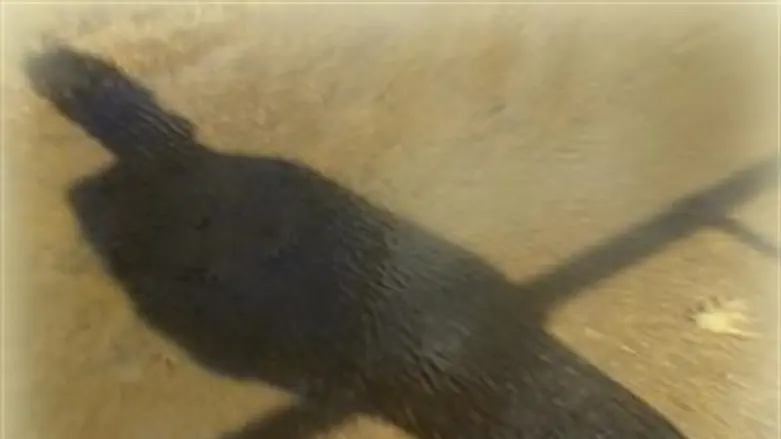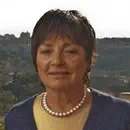
What happened to Raoul Wallenberg, the brave Swedish diplomat who saved tens of thousands of Jews? This question has stayed unanswered for seventy years, despite the concerted efforts of family, government agencies and researchers.
Why has it proven impossible, so far, to trace him? Is it possible that a close look at the search for the Swedish special envoy who disappeared in 1945 might reveal less than optimal use of opportunity, cover ups and a troubling lack of coordination? Can something still be done to clear up the mystery, although finding Wallenberg alive today is improbable as he would be 104 years old?
In order to pool research and information and decide how to go on – or not to, a large and distinguished group of caring people who have been part of the search for the brave man were to meet this weekend to pool their knowledge, brainstorm and hopefully find the light that they hope will mean they are reaching the end of the tunnel.
The Round Table on the Art of the Impossible: Raoul Wallenberg's Rescue Actions in Budapest and the Search for his Fate in Moscow is dedicated to the memory of Guy von Dardel who, together with his sister and his parents, fought for more than 60 years to learn the truth about his brother Raoul Wallenberg. Its venue is the Holocaust Memorial Center in Budapest, Hungary, the city from where he disappeared.
Coordinated by historian Ms. Susanne Berger of the "Raoul Wallenberg Initiative – 70", the Round Table seats Hungarian and foreign diplomats: Szabolcs Takács, Hungarian Minister of State for European Union Affairs Tamás Magyarics, Head of the North American Department of the Hungarian Ministry of Foreign Affairs and Trade, Colleen Bell, Ambassador of the United States of America, NiclasTrouvé, Ambassador of the Kingdom of Sweden, Juraj Chmiel, Ambassador of the Czech Republic, Gajus Scheltema, Ambassador of the Kingdom of the Netherlands, Johannes Leibetseder, Chargé d’Affaires of the Embassy of Austria.
Also attending are Jewish and Israeli public figures András Heisler, President, Federation of Jewish Communities in Hungary and Vice-President of the World Jewish Congress, lan Mor Ambassador of the State of Israel and naturally, members of the family, Marie Dupuy, Louise von Dardel and Cecilia Ahlberg.
Wallenberg was known to have been detained by SMERSH and reportedly taken to Moscow. How does one go about seeking historical records in Russia? What does Russian Law have to say about that kind of search? Three experts, one a human rights lawyer and two of them historians were to present that issue, using the two core documents that deal with gaps in the official record and listing the questions still pending.
Did Wallenberg survive past July 1947? Marvin Makinen Professor, the University of Chicago, an Ari Kaplan Database Specialist brought numbered prisoner and witness testimonies for the Vladimir Prison, where Wallenberg was reported taken.
Are there legal aspects that could be enlightening? David Matas, Canadian Barrister and Human Rights Lawyer reported on that and other experts described conditions in Russian prisons.
Sweden and Hungary, the country for whom he worked and the country in which he worked, respectively, had parts to play in the efforts to discover Wallenberg's fate and therefore those governments are integral parts of the Round Table.
Ingrid Carlberg Author and Journalist, Sweden, divulged misjudgments and mistakes that sealed Raoul Wallenberg's fate, other Swedish academic and government experts compared the difference between promises of "openness" and their omission, placing the onus on previous governments.
László Karsai Professor, University of Szeged, Hungary, presented Hungarian archival material, while the director of the Hungarian Holocaust Memorial center, Professor Szabolcs Szita told the fate of Vilmos Langfelder - Insights gained from Hungarian and Russian archives, and historian Krisztián Ungváry recounted the attitudes of Soviet occupation forces in Hungary towards Jews, Hungarians and foreign diplomats.
The planned 1953 Wallenberg show trial is another topic of interest, along with Raoul Wallenberg's secret Swedish and Hungarian contacts in 1944-45 and an analysis of the "big lie" - Kossuth Radio's announcement of Raoul Wallenberg's alleged murder by the Gestapo in 1945.
Do we have the right to demand the truth? Irwin Cotler, PC, former Justice Minister of Canada, discussed that topic in his talk, titled Pursuing justice: Legal mechanisms for defending political prisoners.
Chinese dissident Harry Wu, who was imprisoned in Chinese labor camp for 19 years and headed the Laogai Research Foundation not only supported the Round Table ideologically, he also helped fund it, but died tragically several weeks ago. His place at the panel on political prisoners was taken by Dr. Inna Rogatchi, author and film maker, president of the Rogatchi Foundation and an op-ed writer for Arutz Sheva.
She was joined by Marvin Makinen Professor, the University of Chicago, imprisoned in Vladimir Prison in Russia 1961-1963, Israel's own Yosef Begun, a former Soviet dissident imprisoned in the Soviet Union for over eight years, Vadim Birstein, a former political prisoner in the Soviet Union, Sasha Bogino Zona Prava, Moscow, a human rights activist working to aid prisoners and to improve prison conditions in Russia, Vera Gara, Survivor of the Holocaust in Hungary.
A synagogue prayer service on Friday night was held in Wallenberg's honor and on , the Hungarian premiere of Dr. Inna Rogatchi's film "The Lessons of Survival: Conversations with Simon Wiesenthal at the Holocaust Memorial Center" took place on Thursday.

Dr. Rogatchi's words, included in the Round Table brochure summarize how the world feels about this unfinished story:
"Just think about it: we have all gathered here In Budapest more than 70 years after Raoul's heroic deeds here and his arrest. We all know that Raoul had no limits when it came to saving lives and no fear for himself when rescuing thousands of Jews.
He was of my grandfather's generation but I always felt he is a contemporary of mine, not because his disappearance left him young forever in our eyes, but because I feel he is a dear friend - and a dear friend does not age.
"According to Jewish belief a soul descends to this world to fulfill a mission. Was it a coincidence that a young representative of a prominent family from a neutral country who studied architecture found himself in a diplomatic role in the midst of the harsh period of the devastating crime and cruelty aimed at total racial extermination? History does not know such coincidences.
"He was a Champion of Humanity, a Shining Soul. These souls do not disappear. Ever. Judaism understands that not only good souls return to this world, but evil ones as well. But it is also a human being’s responsibility to keep the balance between good and evil weighted on the good side. I will never cease to be amazed at how Raoul Wallenberg, in his thirties, fought for that with all his being: his heart, his intellect, his will. And his conscience.
“'Conscience is a Jewish invention,' pronounced Hitler, 'it is a blemish like circumcision.' Well, thank him for indicating the right direction. 'The death of one man is a tragedy. The death of millions is a statistic ' muttered Stalin, being criminally frank to the American Ambassador to the USSR. Tellingly, the account of the famous dinner of Raoul Wallenberg and Eichmann in December 1944 includes similar sentiments expressed by Hitler’s chief Jew-butcher to Raoul with regard to the Nazi policy of annihilation en masse.
"Seeing the evil to his face, Raoul was not afraid of it. How many of us would be able to withstand it with such integrity and grace?:
"What was Raoul thinking when a captive of the Kremlin? I think that he was thinking of his family, and also of all those thousands of people that he saved. And that he smiled.
"I always was and still am sure that we will find the truth about the outrage that the Soviets inflicted onto Raoul and his family. I know I am not alone in this.
"One June afternoon in mid-1990s, legendary Nazi-hunter Simon Wiesenthal told me: 'The world has a big debt on its hands; we all do. This is the debt to Raoul Wallenberg and his family. We are fifty years after the war, and the case has not progressed. Fifty years on!.' Now it is seventy years, and we are still putting our questions to the Kremlin. The outrage inflicted onto Raoul Wallenberg and his family, cruelly and mindlessly, was the shame of the XX century. It just cannot continue to be also the shame of the XXI century. We shall not allow it to happen."
Prophetic? Let us hope so.
